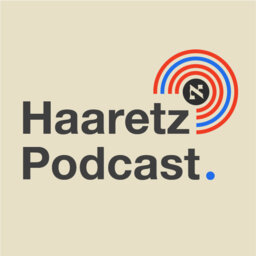'War never saved children. Most Druze say they don't want their tragedy to cause more killing'
It was a scene of "complete chaos" in the town of Majdal Shams in the Golan Heights following the devastating Hezbollah strike that killed 12 Druze children playing soccer on Saturday, Haaretz correspondent Sheren Falah Saab, who was at the scene just an hour after the attack, recounted emotionally on Haaretz Podcast.
"There were ambulances everywhere and hundreds of people surrounding the wounded children and the bodies of the children," said Falah Saab, who is a member of the Druze community, and has spent the days since the tragedy in the hospital at the bedside of her own relatives wounded in most deadly attack on civilians in Israeli territory since October 7.
Falah Saab recalled that "one of most painful sights was the blood-stained bicycles of the children" who were playing on the soccer field and who had no time to run for safety when the siren sounded.
The disaster struck a community already hit hard by the Gaza war, she noted. Ten Druze soldiers have been killed in fighting since the start of the war in Gaza. There has also been damage to agriculture and property. But the greatest economic blow is the near-cessation of tourism by both Israelis and foreign visitors in northern Israel, on which much of the Druze population relies to make a living.
In the midst of calls for massive retaliation by Israeli leaders, including some Druze, Falah Saab maintained that a majority of Druze "say they don't want war, and they don't want this tragedy to cause more tragedy and more killing of children."
Also on the podcast, Halie Soifer, CEO of the Jewish Democratic Council of America discusses the excitement among Jewish Democrats about the candidacy of Kamala Harris for president, following President Joe Biden's decision to bow out of the race.
Soifer said that there will "continue to be no daylight" between the policies of Harris and Biden regarding Israel and the Gaza war.
"She came into this White House with a deep commitment to Israel and in this White House she has been in lockstep with the president on every key issue related to Israel in the lead up to – and now in the aftermath of – the horrific attacks of October 7," Soifer said, dismissing the "vitriol, hate and lies" of GOP nominee Donald Trump who recently charged Democrats with "hating Israel."
Given that three-quarters of US Jews vote for the Democrats, she said, Trump is essentially saying that nearly all of them "are uninformed and disloyal, that we hate Israel, that we hate our religion." His charge that "Kamala Harris doesn't stand with Israel is patently false and yet another iteration of his toxic vitriol, and it's targeting Jewish voters. We should call it out for what it is. It is hate, and we reject it."
According to Soifer, the Jewish vote will be unusually significant in this election, given the presence of Jewish population in key battleground states, in which Harris and GOP nominee Donald Trump are deadlocked.
"This election is going to be close, just like the last one was, and it will be decided by probably about 6 percent of voters in six states: Georgia, Nevada, Arizona, Michigan, Wisconsin and Pennsylvania. We're not talking about a lot of voters who are going to decide the outcome of this election, which is why the Jewish vote is so important."
 Haaretz Podcast
Haaretz Podcast


